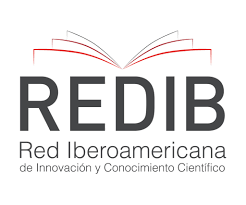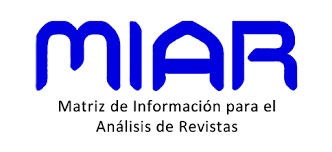Maria Zambrano, a Philosopher of Motherhood
DOI:
https://doi.org/10.51743/cpe.476Keywords:
María Zambrano, motherhood, transcendence, birth, creatureAbstract
The aim of this paper is to show how it’s possible to refer to Maria’s Zambrano thought as a “philosopher of motherhood”. In opposition to a whole philosophical tradition that has recognized death as the distinctive feature of human being, the female philosopher shifts her attention to the other ontological condition of human being – his “natal” and not just “mortal” being – but also shows how this paradigm shift allows an authentic generative thinking. An exercise of coherence with the same reality, that allows us to think again from the experience, from the entrañas, an essential of Zambrano’s thinking that indicates the generative and maternal reality: it is an intelligence of the sensibility’s action itself that acts from the inside and indicates, at the same time, fidelity to reality and opening to the alterity. Then, we will try to draft a fruitful and feminine thought, where authenticity must be sought in a link of a reality that does not exclude transcendence, and allows us to recognize ourselves, above all, as creatures.
Downloads
References
Canullo, C. (2009). Ser madre. Reflexiones de una joven filósofa, tr. esp. de Rubio Morán, L. (2015), Sígueme.
Cavarero, A. (2021). Il femminile negato. La radice greca della violenza occidentale. Pazzini. Primera edición 2007.
Corbin, H. (1971). L’homme de lumière dans le soufisme iranien. Présence.
Martín Gómez, M. (2021). Diario de una filósofa embarazada, Tencos. DOI: https://doi.org/10.36576/summa.145641
Villarmea Requejo, S. (2015). Cuando los sujetos se embarazan. Filosofía y maternidad. Dilemata (año 7), p. 1.
https://www.dilemata.net/revista/index.php/dilemata/article/download/367/372/1377.
Zambrano, M. (1951). Caracas. La piedad. [M-267]. Fundación María Zambrano.
Zambrano, M. (1965), El ser oculto. [M-109]. Fundación María Zambrano.
Zambrano, M. (1989). Diotima de Mantinea. En Ead., Hacia un saber sobre el alma, Alianza Editorial, Madrid 1989.
Zambrano, M. (2011). El hombre y lo divino, en Ead., Obras Completas III. Galaxia Gutenberg. Original de 1955.
Zambrano, M. (2011). Persona y democracia, en Ead., Obras Completas III. Galaxia Gutenberg. Original de 1958.
Zambrano, M. (2011). La tumba de Antígona, en Ead., Obras Completas III. Galaxia Gutenberg. Original de 1967.
Zambrano, M. (2007). Filosofía y educación. Manuscritos. Editorial Ágora.
Zambrano, M. (2012). Cartas inéditas (a Gregorio del Campo). Linteo.
Zambrano, M. (2014) Borrador. [IV. 11 febrero 1989]. En Ead., Obras Completas VI. Galaxia Gutenberg.
Zambrano, M. (2014), Escritos autobiográficos. Delirios. Poemas (1928-1990). En Ead., Obras Completas VI. Galaxia Gutenberg.
Zambrano, M. (2014). Delirio y destino. Los veinte años de una española en Ead., Obras completas VI. Galaxia Gutenberg. Original de 1952.
Zambrano, M. (2015). Filosofía y poesía, en Ead., Obras Completas I. Galaxia Gutenberg. Original de 1939.
Zambrano, M. (2015). A modo de prólogo. En Ead., Obras Completas I. Galaxia Gutenberg. Original de 1987.
Zambrano, M. (2016), El pensamiento vivo de Séneca. En Ead., Obras completas II, Galaxia Gutenberg. Original de 1944.
Zambrano, M. (2016). Hacia un saber sobre el alma. en Ead. Obras Completas II. Galaxia Gutenberg. Original de 1950.
Zambrano, M. (2018). Claros del bosque. En Ead. Obras Completas IV, tomo I. Galaxia Gutenberg. Original de 1977.
Zambrano, M. (2018). De la Aurora. En Ead. Obras Completas IV, tomo I. Galaxia Gutenberg. Original de 1986.
Zambrano, M. (2021). Unamuno en su centenario. En Ead. Unamuno. edición e introducción de M. Gómez Blesa, Debolsillo. Original de 1964.
Zucal, S. (2017). Filosofia della Nascita. Morcelliana.
Zucal, S. (2024). Storia della filosofia della nascita. Dai Greci a Nietzsche, vol. I. Morcelliana.
Downloads
Published
How to Cite
Issue
Section
License
The author reserves the rights (copyright) of the published works, and the journal encourages and allows their reuse, from the preprint. The works are published in the electronic edition of the journal under a license "Creative Commons Attribution / Attribution-NonCommercial 4.0 International Public License - CC BY-NC 4.0", and can be copied, used, disseminated, transmitted and publicly exhibited.
The author / s partially transfer the property rights (copyright) of this work for the printed and online editions, provided that:
- The authorship and original source of its publication (magazine, publisher and URL of the work) is cited.
- Are not used for commercial purposes.
- The existence and specifications of this user license are mentioned.
It also declares to have respected the ethical principles of research and to be free from any conflict of interest.
"C.P.E." encourages the authors and the scientific community to the maximum promotion and dissemination of the works in their final version through:
1) Your list of contacts (emails) and social networks (Facebook, Twitter, LinkedIn ...).
2) Institutional repository of your University and public repositories (Mendeley, Cosis ...).
3) Scientific social networks (ResearchGate, Academia.edu, Kudos ...).
4) Personal or institutional website, blog, etc.
5) Google Scholar, ORCID, ResearchID, ScopusID, Dimensions, PlumX ...
6) Printed copies purchased directly and sent to specialists for reading and subsequent citation if appropriate.




















1.png)
1.png)

1.png)





.png)
.png)

.png)
1.png)
1.png)
